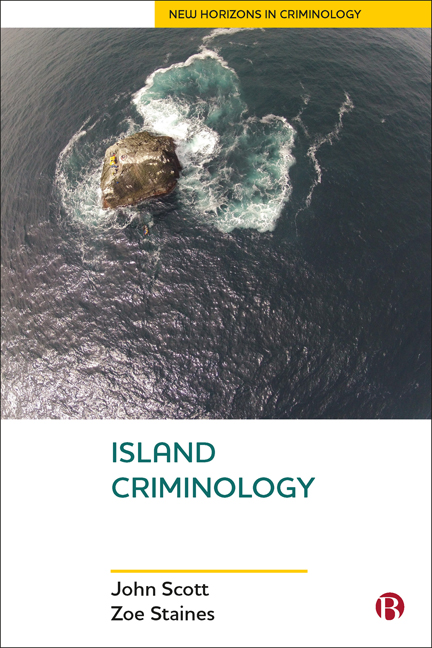3 - Isolation
Published online by Cambridge University Press: 17 January 2024
Summary
Australian Aboriginal and Torres Strait Islander readers should be advised that this chapter contains the names of Aboriginal and Torres Strait Islander peoples who have passed away.
Islands inspire mindscapes for imagining that reality may be experienced in its entirety.
(Thomas, 2007, p 22)The isolation of island spaces has seen them celebrated as bounded ecosystems: places where humans, animals and plants can flourish and thrive. The Galapagos, for example, have been described as a ‘natural museum of geological, ecological, and evolutionary processes’ – characteristics attributed to their ‘extreme isolation’ (Claudino-Sales, 2018). The Galapagos were also the first location to be declared as a United Nations Educational, Scientific, and Cultural Organization (UNESCO) World Heritage Site, and famously provided a backdrop to Charles Darwin's theory of evolution. The Sundarbans (Bangladesh and India) and the Rock Islands (in Palau) are similarly regarded as remote ecological paradises and are also UNESCO World Heritage Sites (UNESCO, 2021a, 2021b). Equally, islands have been important sites for human evolution. Flores (off Indonesia), for instance, is home to fossils from the earlier hominid species homo floresiensis, and it is the isolation of the island that has provided an axis upon which debates have arisen around this early human's origins. Those debates tend to involve two views: that homo floresiensis was a direct descendent of earlier human species that had been isolated and protected on the small island, or that it was a smaller more primitive cousin of modern humans that had evolved differently because of Flores’ extreme isolation (van den Bergh, 2016). In both cases, island isolation inflects archaeological and anthropological theorizing about the species’ origins. In this chapter, we explore how island isolation might also influence and inflect criminological theorizing.
Although to some people, ‘islands are simply home’ (Mountz, 2015, p 636), they have tended to be imagined through a Western lens as spaces that are both idealized and feared. As we touched on in Chapter 2, their separateness and isolation prompt visions of paradise, but also dislocation and banishment. Island isolation promises a reprieve from the pressures of ‘mainstream’ (‘mainland’) society, but for those who emigrate (or are exiled) to islands, also implies abandonment – the island-dweller either abandoning mainland society, or indeed mainland society abandoning them. Of course, concepts like isolation, separation, and abandonment are inherently relational.
- Type
- Chapter
- Information
- Island Criminology , pp. 42 - 59Publisher: Bristol University PressPrint publication year: 2023

